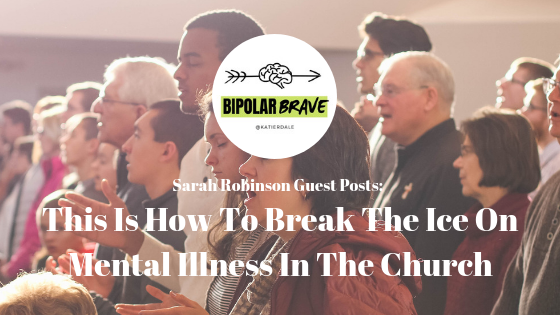I read Sarah’s recent article in Relevant Magazine and reached out to her to collaborate, and she graciously obliged. My next post will be a link to my piece on her blog about how to serve others who have mental illness in the church.
We were crammed like sardines into her living room, dozens of youth pastors with skinny jeans and tattoos. I perched on the edge of the sofa, notebook open and pen scribbling to keep up with the wisdom shared by a forty-year ministry veteran.
But when I left that retreat, it wasn’t the pragmatic advice that stuck with me. It was the deep, gut-level honesty about the hard seasons, the challenges of ministry, and something the Church wasn’t talking about: mental health.
She talked about the darkness and how she beat it back with daily disciplines, prayer, and medication. She talked about the battle to find a decent Christian counselor and how many people will never understand why we can’t just snap out of it. And she talked about the way she wished someone had told her it was okay to get help so she wouldn’t have struggled in silence for so long.
We saw her as a spiritual giant after decades of ministry. But every church leader in that room sat transfixed by her courage and vulnerability to connect through weakness.
That was nearly ten years ago and, at the time, the American Church hadn’t really figured out how to break the ice and talk about mental illness. But that’s been slowly changing.

Tragedy starts the conversation.
In 2013, Rick and Kay Warren’s precious son, Matthew, lost his lifelong battle with mental illness and died by suicide. While the Warrens grieved, a nationwide conversation on mental health and the Church was launched.
Sadly, much of the Church either missed the memo or contributed to the conversation in destructive ways. Many professing Christians reinforced stigma around mental health struggles while others went so far as to wish Matthew would burn in hell.
Over the years, other high-profile suicides have resulted in similarly cruel assessments of those who lost their battles with mental illness. Pat Robertson famously suggested that Robin Williams died by suicide because he believed in a “heathen god,” despite the actor’s documented struggle with depression.
Robertson went on to say that Christians “won’t want to commit suicide.” Unfortunately, this is simply untrue. (I wrote about my own struggles with severe depression and suicide in this article: I Love Jesus but I Want to Die: What You Need to Know About Suicide.)
These days, the Church is becoming more open to talking about the realities of mental health struggles. While it usually takes tragedies like Matthew Warren’s death to open up the conversation, we don’t have to wait to break the ice on mental illness.
Here are a few simple ways the Church can have powerful, productive conversations about mental health:
- Have a pastor, leader, or congregant share their story. Stories are one of the most powerful ways we can learn. I was so proud of my church and one of our pastors for vulnerably sharing his experience with depression shortly after Andrew Stoecklein’s death.
- Use annual observances to make mental health part of your ongoing conversation. This list from Stamp Out Stigma will give you plenty of ideas, including Suicide Prevention Week, Self Harm Awareness Month, and PTSD Awareness Day.
- Host a suicide prevention or mental health training for your leaders and the community.
- Compile a list of resources (therapists, counselors, psychiatrists, facilities, clinics) for mental health challenges. Don’t forget to mention them from the pulpit every now and then to make sure congregants know they are available.
- Work to establish a no-shame culture in your church.
- Honor those who share their struggles with mental health as courageous.
- Check out these statistics from Lifeway Research to learn more about the misconceptions and myths Christians believe about mental health.
It doesn’t matter whether we’re pastors, volunteer leaders, or church attendees: we can all help break the ice about mental health. Let’s not wait for tragedy to strike before having these crucial, life-saving conversations.

Sarah Robinson has a thing for redemption and finding hope in the darkest places. Check out BeautifulBetween.com for honest stories about faith, mental health, and cultivating joy. She made this hope-filled manifesto just for you <3.

What do you think?